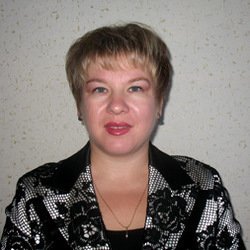‘The electronic book is necessary, without doubt, but it hasn’t appeared in fact’
Tatarstan was the first in Russia to adopt an electronic report, but the electronic book has stalled now in the country
The news about electronic reports in Tatarstan was 10 years on 27 April: the authorities of the republic announced the start of one of the biggest regional projects on educational informatisation in 2010. During the year after that, Tatarstan completely switched to virtual marks and tasks at school, while Moscow was still beginning to implement an analogous project. Read in Realnoe Vremya’s report how digital reports drove out the paper and if schools need electronic books.
All teachers were handed out computers
Albert Gilmutdinov — a predecessor of today’s Minister of Education of the Republic of Tatarstan Rafis Burganov — claimed in 2010 that electronic reports in Tatarstan schools would completely drive paper reports out several years later. And two years later Minister of Education of Russia Dmitry Livanov said in reply to a question when all schools in the country would switch to digital reports: “The coverage in Tatarstan is already 100%. It depends on a region’s policy. I, in turn, will support it by all means.” At that moment, only 17% of schools in Moscow Oblast used electronic reports.
“All comprehensive organisations in Tatarstan were the first in Russia to switch to electronic registers. The electronic register and electronic report are integrated into the state information system Electronic Education of the Republic of Tatarstan edu.tatar.ru. All municipalities of the republic are covered by this service,” Realnoe Vremya was told in the press service of the Ministry of Education of the Republic of Tatarstan.
Now parents can have a look at the pupil’s report on State Services of the Republic of Tatarstan portal. A teacher inserts the timetable of classes, homework, a comment, message for parents, marks in subjects to the electronic register. “Nowadays the service of the electronic register and report operates as usual. In case of issues, there is technical support for users of the service,” the ministry said.

She said that all teachers learnt how to work with edu.tatar.ru educational portal, the electronic register is a part of it. It was created deliberately for Tatarstan teachers and combined several types of information: a catalogue of educational establishments, including pre-school establishments, the website of the school with regulatory documents, a list of events, the staff, a bank of electronic resources, teachers’ electives and many other things.
“Thanks to the electronic report, everybody — both the pupil and a parent with a login and password — can see what a task a teacher gave. As a mum, it is convenient because I see my child’s academic performance and see what tasks he is given. And as a teacher, I understand it isn’t difficult for a pupil to be informed and prepare if he was absent in the previous class. He can always open the electronic report and see the tasks,” the director of the school in Innopolis noted.
Paper report is for communication
“A school decides itself to have only an electronic report or a paper one too. This is why some educational establishments offer pupils to have paper reports if they consider it necessary,” the press service of the Tatarstan Ministry of Education noted.

“Paper reports stopped being needed a year after the service began operating in the republic, they aren’t a compulsory part. If children want, they have the reports. But the electronic analogues are convenient for them, they don’t have to write tasks down themselves. The system also has advantages for the educational process: ‘I forgot to write the task down. I didn’t know what task was given,” such answers from a pupil don’t work for the teacher anymore,” Vice Director of Educational Administration of Nizhnekamsk District Ayziryak Ramazanova told our newspaper.
Director of Gymnasium No. 2 in Yelabuga Ramil Airov shared the experience of his school:
“When I came to work here, the system of electronic reports had already been established. It is impossible not to find something. Every child has a password — we don’t have global complaints. We don’t strictly require the pupils to have paper reports. It depends on a class teacher. They insert the homework to the electronic register. It is convenient, illustrative; if a child lost the task he had written down, he always has the electronic version in front.”
“I am a handicrafts teacher. I am putting marks for the class right now,” Director of Urusovo School in Menzelinsk District Ildus Mauzeyev tells Realnoe Vremya. “The electronic service has been running here for several years already. I have an experienced vice director of educational affairs, she introduced the system. We got used to the electronic report and register — it is a very convenient thing, it is impossible to work without it now. Parents need the electronic report too, they check children’s marks out. And teachers anyway ask the pupils to carry paper reports. Sometimes not every task is convenient for a teacher to add in the electronic version, it is easier sometimes to write it down in the paper report. This is why we still don’t forget the paper version.”
Alla Golovenkina paid attention to the fact that despite digital possibilities, teachers anyway saved the “living” report as a means of communication.
“We still used paper registers and children had paper reports some time after the introduction of the new system. I think that the electronic report completely replaced the paper one some five years ago. Neither do we have paper registers, every school has the right to print them at the end of the year. I know that some schools save the paper report, but it is rather designed for some communication: some reminders can be written down there, teachers address parents, put marks for behaviour. And primary teachers need it more,” the director of the school in Innopolis explained.
It doesn’t take advanced schools much time for such novelties, they quickly introduce modern technologies, while yesterday’s paperwork burdens them.
“The electronic report is quite natural. Paper reports weren’t needed immediately after they appeared, while they were required to be used for a long time — this stopped now. As soon as something new appears, our educational administration can’t say goodbye to obsolete methods, they become a thing of the past slowly. Neither do class registers exist now, teachers can use them if needed. Some primary classes still use the paper reports because parents want it,” replied Director of Sun boarding school for smart children Pavel Shmakov.
Electronic book needs one conception and scanning devices
Minister of Informatisation and Communications of the Republic of Tatarstan Nikolay Nikiforov announced another promising project as early as 10 years ago — Electronic Book. He said that the project would free schoolchildren from the heavy rucksack behind their shoulders and that the electronic book would replace most paper books.
“Electronic books will become an indispensable part of the educational process, I can’t say exactly when, but this is undoubted. They not only make a schoolchild’s rucksack lighter but also provide a new format of perception of information: besides the text and a picture, they give a lot of possibilities to click links to another source of information or include a video and animated illustration. Also, it is possible to do and check the tasks online,” Alla Golovenkina described digital advantages.
However, she called the topic of the electronic book open.

Also, according to Golovenkina, officially recommended books must be suitable for different types of devices. Tablets, laptops, mobile phones must have certain characteristics. Now parents are already signing a petition against online education on the Internet, they are protesting against digital education, and the electronic book is part of it. Adults are concerned because with online education children are using gadgets quite a lot. “Online education harms not only pupils and teachers’ health...” reads the petition. One can assume that there will be a lot of people discontent about this form of learning when the electronic book is introduced.
“Will there be a lot of pressure on the eyes? I don’t think so. The electronic book is just a part of the instruments of the learning process. It is more correct to say that it is necessary to teach children to rationally use the computer when studying and resting,” the teacher from Innopolis explains the new approach.
“A problem arose with the spread of electronic devices — how to ban children from using all this. The load must be calculated, there must be a sensible combination of electronic devices and paper books, and the older children become, the more digital devices in this combination can be permitted,” the director of Sun supposes.